Popcorn is a delicious, addictive, and almost indispensable snack when we go to the movies. So, how many calories are in popcorn? Will eating popcorn make you fat? Let’s find out!
1 How Many Calories Are in 100g of Popcorn?
According to nutrition experts at the International Medical Clinic, there are approximately 374.8 calories in 100g of regular popcorn.
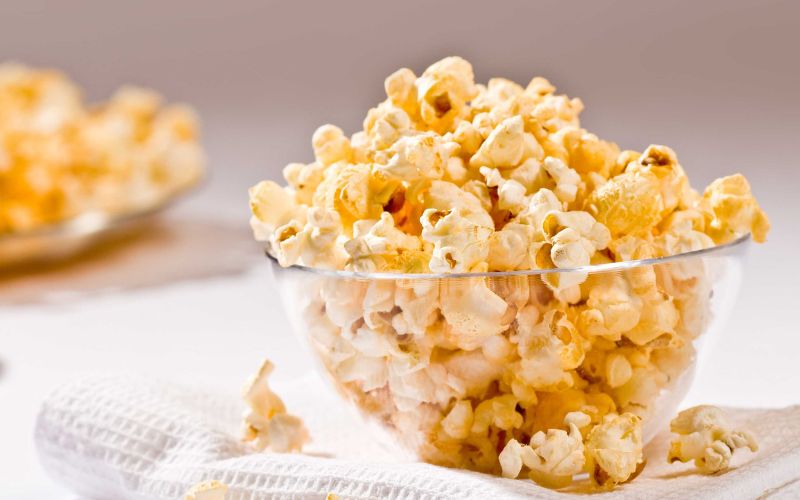 Calorie content in 100g of popcorn
Calorie content in 100g of popcorn
However, the calorie content of popcorn can vary depending on the different preparation methods:
- Air-popped popcorn: 525 calories.
- Microwave popcorn: 431 calories.
- Butter-flavored popcorn: 535.7 calories.
- Matcha-flavored popcorn: 411.8 calories.
- Spicy popcorn: 476.2 calories.
- Kettle corn popcorn: 466 calories.
2 Nutritional Value of Popcorn
Popcorn is not just a tasty and appealing snack, but it also offers a variety of nutrients that are beneficial to our health. Specifically, the nutritional content of traditional popcorn is as follows:
- Carbohydrates: 75g.
- Protein: 3.57g.
- Fat: 14.29g.
- Fiber: 3.6g.
- Sodium: 36mg.
- Other nutrients: 0.71mg of iron, 71mg of phosphorus, 429mg of potassium, etc.
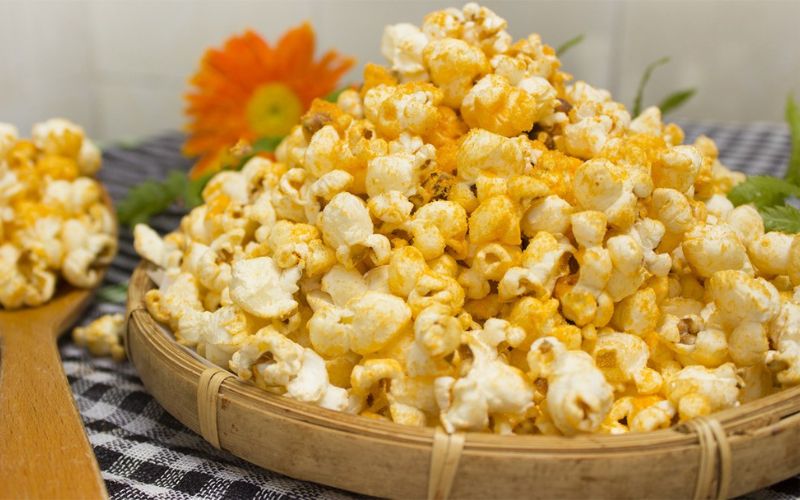 Nutritional content of popcorn
Nutritional content of popcorn
3 Benefits of Eating Popcorn
As it contains a diverse range of essential nutrients, popcorn has several health benefits, including:
- Improves digestive health: Popcorn is made from corn, which is a type of whole grain. It is a good source of fiber, vitamins, and minerals, which can enhance digestive health and help prevent heart disease, diabetes, and obesity.
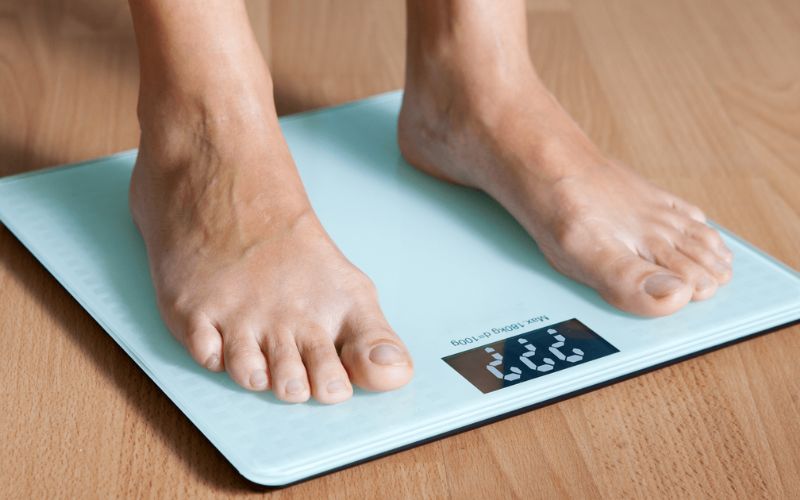 Eating popcorn can aid weight loss and provide other benefits
Eating popcorn can aid weight loss and provide other benefits
- Weight loss support: Compared to other snacks, popcorn has a relatively low-calorie content (around 31 calories per cup of popcorn). Additionally, due to its high fiber content, popcorn can make you feel fuller for longer, reducing the urge to consume excess calories and supporting weight loss.
- Antioxidant properties: In addition to the nutrients mentioned above, popcorn also contains a significant amount of polyphenols, which are antioxidant compounds that protect your body from the harmful effects of free radicals, supporting blood circulation and reducing the risk of cancer.
4 Does Eating Popcorn Make You Fat?
Although it can aid weight loss, popcorn prepared with excessive amounts of butter, sugar, and other flavorings (such as matcha or chocolate) can provide a significant amount of calories and saturated fat.
 Whether eating popcorn leads to weight gain depends on various factors
Whether eating popcorn leads to weight gain depends on various factors
Specifically, a small bag of popcorn made with butter, lots of sugar, and additives can contain up to 24g of saturated fat, which, when consumed in excess, can increase the accumulation of white fat in the body, leading to uncontrolled weight gain and negatively impacting your desired physique.
5 Is It Healthy to Eat a Lot of Popcorn?
Not only can it cause rapid weight gain, but consuming popcorn regularly, especially the types prepared with oil and added sugar, salt, etc., can disrupt the digestive system, causing acid reflux and indigestion, as well as increasing cholesterol levels in the blood, leading to cardiovascular diseases and atherosclerosis.
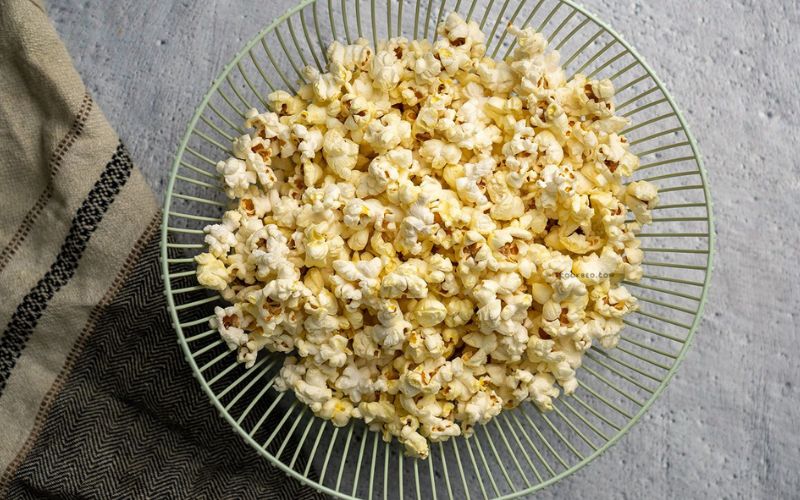 Excessive popcorn consumption can lead to several health risks
Excessive popcorn consumption can lead to several health risks
Therefore, it is recommended to limit popcorn consumption to no more than 100g per meal and 350g per week to maintain a healthy weight and fat intake. Additionally, individuals with obesity, a history of heart disease, high blood fat, diabetes, or other related conditions should avoid eating popcorn as a snack.
Furthermore, children under the age of five should not be given popcorn regularly, as their throat may be too small, posing a choking hazard and a risk to their respiratory health.
6 How to Eat Popcorn Without Gaining Weight
To enjoy popcorn without worrying about weight gain, consider the following tips:
- Limit yourself to 50g of popcorn per day: Prepare a small bowl or paper bag with 50g of popcorn and stick to that amount for the day. This will ensure you get the necessary fiber and minerals without consuming excess calories.
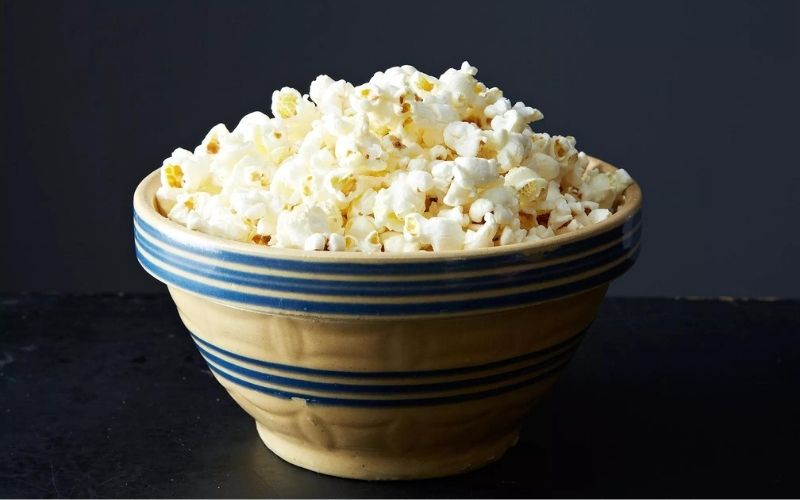 Tips for eating popcorn without gaining weight
Tips for eating popcorn without gaining weight
- Avoid cheese-flavored popcorn: To prevent consuming excess fat and calories, stick to traditional popcorn without added butter, cheese powder, or other additives.
- Don’t eat popcorn too late at night: As with any snack, it is best to avoid eating popcorn after 7 pm to give your body enough time to digest the food and prevent weight gain and digestive issues.
7 When Is the Best Time to Eat Popcorn?
To boost your energy levels, consider having a bowl of unsweetened popcorn for breakfast, along with fruits, nuts, seeds, and other healthy options. This will provide you with the necessary carbohydrates and fiber to keep you energized throughout the day.
 Popcorn can be enjoyed for breakfast or as an afternoon snack
Popcorn can be enjoyed for breakfast or as an afternoon snack
Additionally, popcorn can be a great afternoon snack to curb your hunger and prevent overeating during dinner. Aim for a portion of around 50g to induce a feeling of fullness and reduce your overall calorie intake.
8 How to Make Popcorn at Home
To make delicious and appealing popcorn at home, you’ll need a few simple ingredients such as dried corn kernels, unsalted butter, powdered sugar, and cooking oil.
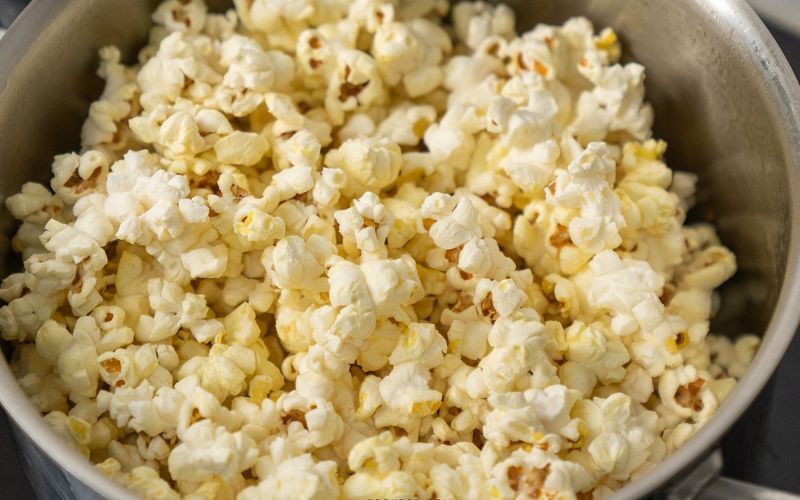 Making popcorn at home
Making popcorn at home
Heat some oil in a pot, add the corn kernels, and shake the pot to coat the kernels evenly. Cover the pot and wait for the kernels to pop. Once the popping slows down, remove the lid and add the sugar and butter. Cover the pot again and shake it gently to distribute the melted butter and sugar evenly. Finally, pour the popcorn into a bowl or paper bag and enjoy!
Reference:
9 Precautions When Eating Popcorn
To avoid any potential health risks, keep the following in mind when eating popcorn:
- For pre-packaged popcorn, always check the expiration date and origin to accurately determine the calorie content and nutritional value of the product.
- When making popcorn at home, use less oil and flavorings to prevent water retention and weight gain, and to preserve the nutritional value of the popcorn.
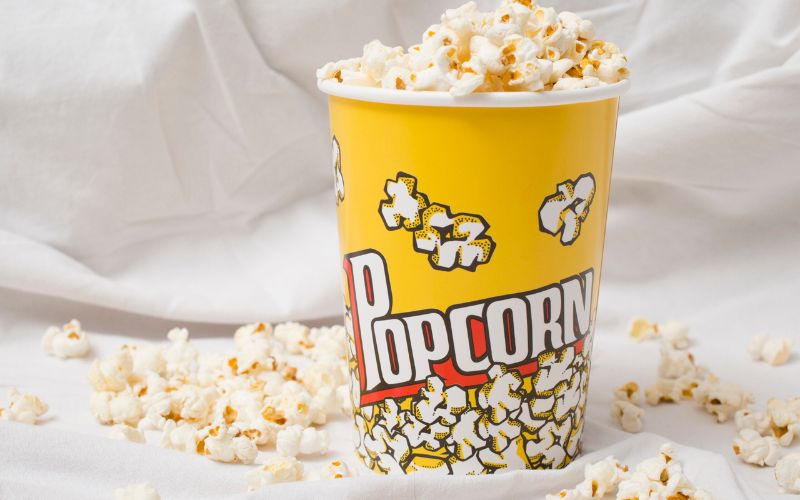 Precautions when eating popcorn
Precautions when eating popcorn
10 Frequently Asked Questions About Popcorn (if any)
Can regular corn be used to make popcorn?
In addition to dried corn kernels, you can also use corn with a slender shape, even if the kernels are small, as long as they are not deformed. Although the kernels may not pop as large, the resulting popcorn will still retain the delicious flavor and nutritional value of traditional popcorn.
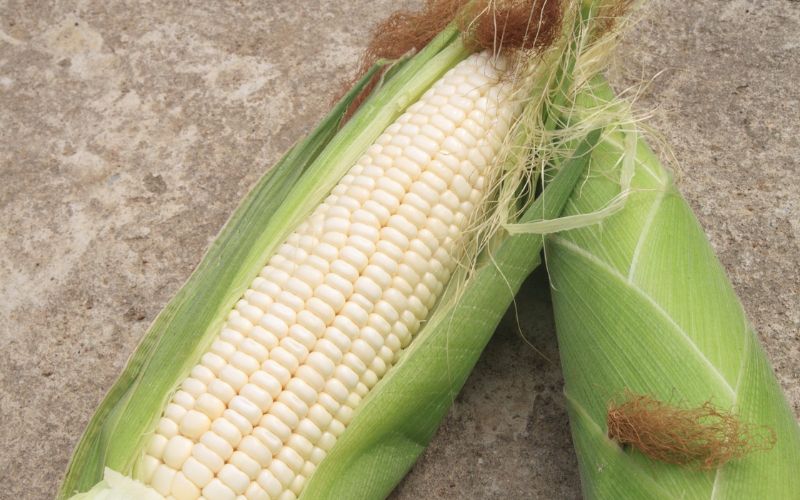 Corn with a slender shape can be used to make popcorn
Corn with a slender shape can be used to make popcorn
Why do corn kernels pop?
When heat is applied to dried corn kernels, the water inside the kernels evaporates and tries to escape, but it is trapped by the hard outer shell. As the temperature increases further, the pressure inside the kernel builds up until it pops, forcing the starchy interior out and causing the shell to crack, resulting in the expansion of the corn kernel into popcorn.
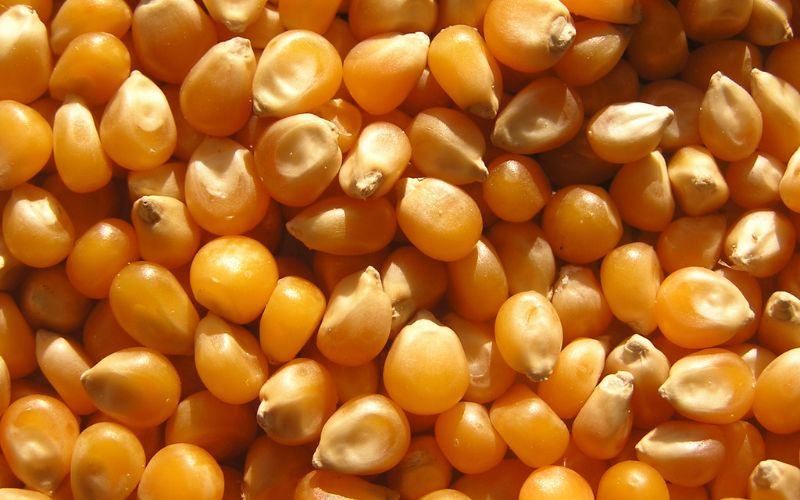 Reason for the expansion of corn kernels
Reason for the expansion of corn kernels
The information provided above details the calorie content of popcorn and answers the question of whether eating popcorn can make you fat. We hope that this article will help you enjoy this delicious snack in a way that aligns with your health and fitness goals.
Source: Healthline






























